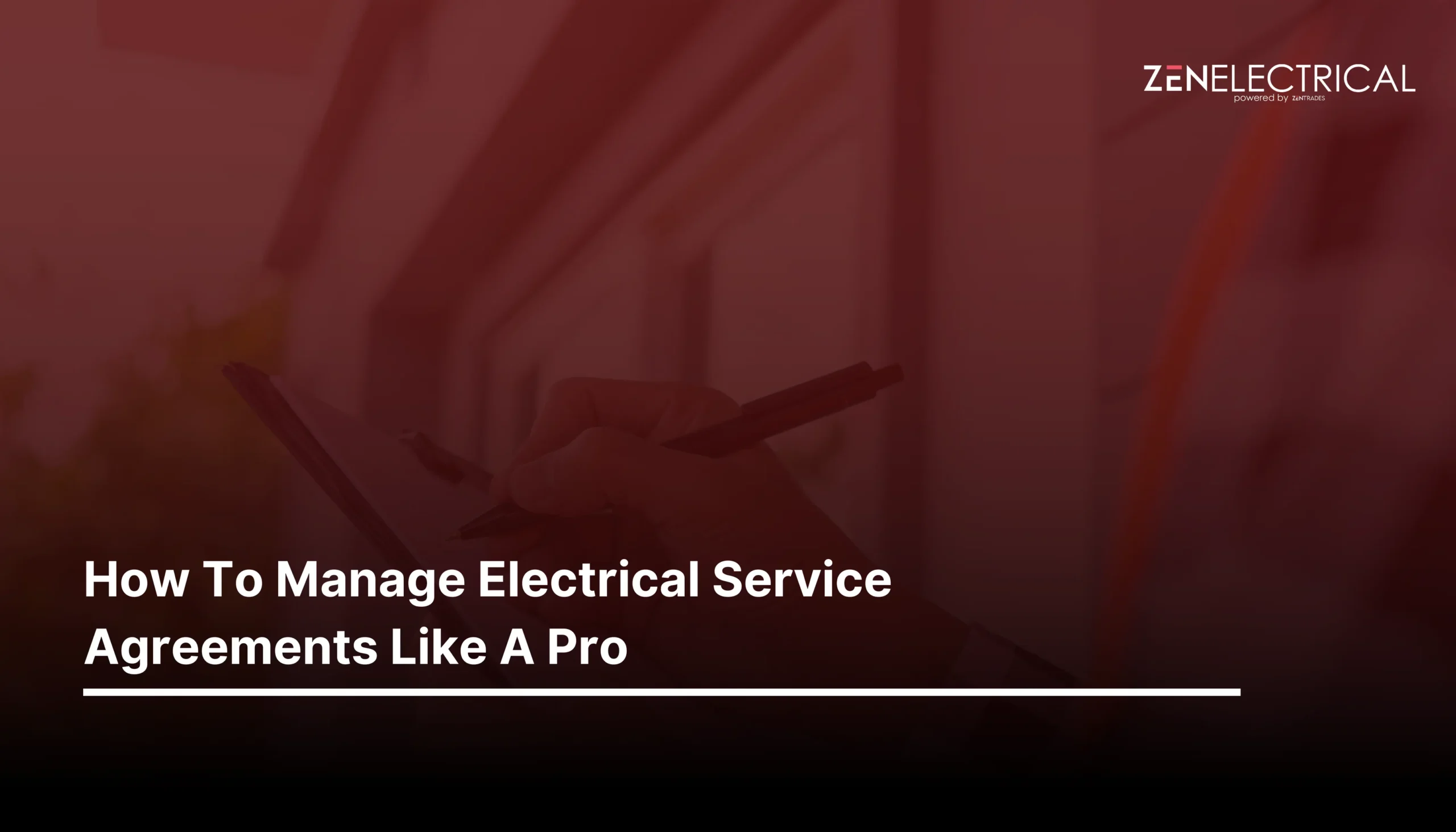
- Georgia has 6% fewer electricians per capita than the U.S. average.
- A 4-year apprenticeship with 8,000 work & 576 classroom hours is required to become a journeyman.
- Georgia only issues Electrical Contractor (Class I or II) licenses.
- For a contractor license, you must be 21+, have 4 years of experience & pass the PSI exam.
- Licensed electrical contractors in Georgia can earn $1,35,000/year.
Becoming a licensed electrician in Georgia requires a mix of classroom education and hands-on training. There are about 16590 electricians who are currently working in Georgia, and to be honest, the demand is growing. According to the U.S. Bureau of Labor Statistics, there is a possibility of 11% job growth for electricians nationwide from 2023 to 2033. Georgia actually has roughly 6% fewer electricians per capita than the U.S. average, which indicates that there will be strong demand in the state. Typically, electricians in Georgia install and maintain wiring and systems in homes, businesses, and industry, which requires a combination of both technical know-how and adherence to codes and standards, especially the National Electrical Code (NEC).
If you are planning to enter this field, you typically have to go through three stages: Apprentice, Journeyman, and Master Electrician. An apprentice electrician has to learn the trade by working under the supervision of a licensed electrician and taking classroom courses. After you complete the apprenticeship, you become a journeyman electrician. You have to work under a licensed electrical contractor, but you will be able to perform electrical work independently. Finally, a master electrician (in Georgia, officially a certified electrical contractor) is someone who has all the experience required and has passed the state licensing exam. They are allowed to have their own business and pull permits. In Georgia, there is no separate journeyman license, unlike other states. After the apprenticeship, you can simply work as a journeyman under a licensed contractor (Class I or Class II) who is registered by the state.
In this blog, we are going to explain each stage of the licensing process in detail while answering all the common questions that people usually have, such as the costs for getting an electrical contractor license, how long it takes to get an electrician license, salary, etc.
Table of Contents
What Are Electrical Licensing Requirements In Georgia?
The licensing system of Georgia is different from that of many states in the United States. Individual electricians, i.e., journeymen, are not required to hold a state-issued license. Instead, only electrical contractors must be licensed by the Georgia Construction Industry Licensing Board, which is a division of the Secretary of State. To put it simply, the apprentices and journeymen have work under the authority of a licensed electrical contractor. And to run your own company, pull permits, and advertise, you must obtain an Electrical Contractor license in Georgia. And there are two classes of electrical contractor licenses in Georgia: Class I and Class II. Let’s go through each of them:
Class I Licensed Electrical Contractor
With a Class I license, you can work on single-phase systems up to 200 amperes, which would include small jobs like residential wiring and small commercial systems. You must be at least 21 years old and have 4 years of electrical experience to apply for this license. But if you have 2 years of college-level electrical training, it can substitute for 1 year of experience. Class I holders cannot work on three-phase or high-amperage systems.
Class II Licensed Electrical Contractor
With a Class II license, you can work on all electrical systems, which would include multi-phase and heavy commercial and industrial installations. The requirements to apply for this license are the same as for Class I. However, the scope of work is broader.
Both Class I and Class II electrical contracting licenses are issued by the Georgia Professional Licensing Board, and you must pass a state exam conducted by PSI with a score of 70% or higher. Once you obtain the license, it must be renewed every 2 years with eight years of continuing education, i.e, 4 hours per year, required in each renewal period.
Can I Do Electrical Work In Georgia Without An Electrician License?
No, you cannot do electrical work in Georgia without a license. Georgia does not issue a journeyman license, but apprentices and journey-level electricians have to work under a licensed master electrician’s supervision. Additionally, you cannot pull permits or work independently without a master electrician’s license. Only after you meet all the requirements we have talked about above and hold a Class I or II Electrical Contractor (master electrician) license can you legally perform electrical work and serve as a master electrician in charge of jobs, pull permits, sign off on inspections, and bid projects.
It is important to note that the state board license is for the individual electrician only and not for the entire company, if they run a company. To operate a contracting business, you have to register a business with the Georgia Secretary of State and get other required local business licenses.
Local Permits and Electrical Business Registration in Georgia
On top of state licensure, electrical contractors have to comply with local regulations. For example, the City of Atlanta requires all businesses to obtain a general business license to operate within city limits. Similarly, Fulton County (which includes Atlanta) considers electrical work as a trade permit. Electrical contractors must apply for electrical permits before beginning work. Fulton’s building permit forms explicitly require original notarized signatures from a licensed electrical contractor. So, any construction permit, whether residential or commercial, that involves electrical work will be released to a licensed contractor or a contractor’s signature. So, if you are planning to work as an independent electrician, you should get the state contractor license first and then make sure that your electrical business is registered locally and has all the required trade permits.
Steps To Become A Licensed Electrician In Georgia
Step 1: Join The Apprenticeship Program and Training
If you want to be a master electrician, the first step is to become an electrical apprentice. Accredited apprenticeship programs usually combine paid on-the-job training with classroom instruction. In Georgia, you have to enter an apprenticeship program either through union channels or a non-union (independent) program. Here is a more detailed breakdown of these program types:
Union Apprenticeship
The International Brotherhood of Electrical Workers (IBEW) has Local unions in Georgia, like Local 613 in Atlanta. Union apprenticeships require almost 8000-9000 hours of on-the-job training for about 4-5 years, along with 576 classroom hours. There are many union programs that require 5 years of apprenticeship with about 180 classroom hours per year. The minimum age is usually 18 years, and you need to give drug and aptitude tests, and complete high school.
Non-Union Apprenticeship
Organizations like the Independent Electrical Contractors (IEC), Associated Builders and Contractors (ABC), or other trade school programs offer non-union apprenticeships. For example, the IEC Atlanta/Georgia chapter runs a four-year apprenticeship program that requires 8000 hours of work and 576 hours of classroom instruction. You generally need a high school diploma or GED (there are some programs that accept younger students if enrolled in a related vocational program), and you must be at least 16-18 years old. Usually, the registered apprentice will attend night or weekend classes at technical colleges while working full-time under a contractor’s supervision.
During the apprenticeship, you are working for a licensed contractor, learning skills like installing wiring, reading plans, and following the National Electrical Code. Apprentices get paid wages that usually start around $15-$20 per hour, which increase each year as they gain skill. Wages vary by union versus non-union. Union apprentices often start at a higher rate due to union-scale wages, but both pathways lead to similar journeyman-level pay once completed.
Whether union or non-union, you are awarded a national journeyman certificate upon completion. Union apprentices get a nationally recognized journeyman card from the U.S. Department of Labor, while IEC and other school provide their own certificates.
Step 2: Work As A Journeyman Electrician
After you complete an apprenticeship, you become a journeyman electrician. In Georgia, this is not a legal license, but it’s the de facto status of an electrician who has finished the training. A journeyman electrician can perform most electrical work under the direct supervision of a licensed electrical contractor. However, here is a more detailed breakdown of what the roles and responsibilities are:
Roles and Responsibilities Of A Journeyman In Georgia
Usually, as a journeyman, you install, maintain, and troubleshoot electrical systems in homes, businesses, or industry. You interpret blueprints, make sure everything remains compliant with electrical code changes, and work independently on tasks like commercial wiring circuits and installing electrical panels without constant supervision. However, you will still be working for an electrical contracting company that holds a state license. You can not pull your own permits.
Usually, journeymen continue to learn on the job. There are many electricians who remain journeyman for years and gain experience on larger and more complex projects until they qualify for their own contractor license. However, when you are on the job, collect the documentation you will need for the licensing exam, like pay stubs, W-2s, and letters that verify your hours of experience for licensed contractors.
To conclude, if you have completed a union apprenticeship, you already have a journeyman card from the U.S. Department of Labor. While Georgia doesn’t really require journeyman cards, having them can boost your resume.
Uniquely, because Georgia doesn’t have anything like a licensed journeyman electrician, you can legally work as a journeyman for an electrical contractor without any state-level license once you complete an apprenticeship.
Step 3: Apply For The Electrical Contractor Exam By PSI
In Georgia, the term “Master Electrician” is actually not an official license category. In fact, the top level is a licensed Electrical Contractor (Class I or Class II). Many people use “master electrician” colloquially to mean someone who has passed the licensing exam and holds an unrestricted contractor license.
Experience Requirements
When it comes to experience requirements, you must be at least 21 years old and have 4 years of experience in electrical work to qualify for an electrical contractor license. This means completing an apprenticeship along with additional time you spent as a journeyman, since most apprenticeships are 4 years long, the board counts those years. Some programs even count 2 years of college-level schooling (such as an electrical engineering degree) in lieu of 1 year of work experience. You must keep in mind that this experience needs to be documented like W-2s and affidavits from employers.
In conclusion, the board usually expects roughly 8000 hours of documented on-the-job electrical work. Union programs (5-year, 9000+ hour programs) often exceed this, so many applicants end up with 5 years of experience.
Electrical Licensing Requirements
When you are ready to apply, fill out the “electrical contractor license” application form from the Secretary of State’s site. The application fee is $30, but a $10 processing fee might be required additionally. So, you should check the latest fee schedule. Also, you must submit three references, including one who is a currently licensed electrical contractor in Georgia. The other references can be your employers, supervisors, or others who can vouch for your work experience and character. You also need to provide proof of your 4 years of experience, which is typically via W-2 forms, tax returns, or signed experience affidavits. You need to provide proof that you are 21 years old and have a high school diploma or GED.
Georgia’s Electrical Contractor Exam
Georgia’s electrical contractor exam is administered by PSI. The exam has two versions (Class I or Class II), but both cover similar subject matter, i.e., a mix of regulations and laws (Georgia electrical codes, business law) and Technical Functions (electrical theory, wiring methods, transformers, motors, safety).
The exam fee is $30, which you pay to PSI in addition to the $30 application fee. Class I has 155 questions (15 unscored pretest items, and Class II has 162 questions (22 pretest items). You need to score 70% or above to pass the exam. The exam is open-book; you can bring a copy of the National Electrical Code (NEC) and other reference materials listed by PSI. Once your application is approved by the board, you are going to receive an exam voucher with instructions on scheduling via PSI’s website or phone. If you fail the exam twice, the board will require you to take a board-approved review course before a third attempt. But if you pass the exam, you will earn the license.
How Much Is A Georgia Electrical License?
After you pass the exam, you must pay the license issuance fee, which is typically $75. You can expect to pay between $115 and $140 for everything from applying for your license to renewing it for the first time. This would include the $30 application, $30 exam, license fee, and initial continuing education courses. Additionally, Georgia requires continuing education; you must complete 4 hours of electrical CE each year (8 hours per two-year cycle). This is to ensure that you stay current on electrical code changes and best practices.
Are Electricians In Demand In Georgia?
Yes. As mentioned above, Georgia has fewer electricians per capita than most states in the U.S. The growth factors are new construction, renewable energy, infrastructure upgrades, and the retirement of older electricians, which are driving the demand for electricians. BLS projects an 11% increase in electricians nationally by 2033, which is much faster than average. This trend holds for Georgia, too, given the construction boom in Atlanta and expanding industries.
How Much Does A Licensed Electrician Make In Georgia
The pay of a licensed electrician varies widely based on experience, certification, and whether one is an employee or contractor. According to the Georgia Electricians Salary data:
Electrician Apprentice: According to a report by Indeed, apprentices in Georgia earn an average of $19.28/hr, which is roughly $40,000 per year.
Journeyman Electrician: General electricians get a state average of $26.55/hr with salaries often starting in the low $20/hr and can rise to $30/hr as experience grows.
Master Electrician: A master electrician gets a rough pay between $38 and $39 per hour, which is about $80,000 per year.
Electrical Contractor: Indeed reports a $64.96/hr average for electrical contractors, which is roughly around $135,000 per year.
These figures are averages. The actual pay varies by city, employer, and union affiliation. Generally, Atlanta and Savannah pay more than rural areas. And union journeymen often start at higher wages than non-union but union contractors may take a larger share for dues.
What Is The Shortest Time To Become A Licensed Electrician In Georgia?
It takes a minimum of 4 years of apprenticeship, plus passing the electrical contractor exam, to become a licensed electrician in Georgia. Some union programs take 5 years, but a dedicated apprentice could complete 8000 hours in roughly 4 years.
Conclusion
Becoming a licensed electrician in Georgia requires multiple years of commitment, but it ultimately leads to a stable, well-paying career in a high-demand field. By completing an apprenticeship, working as a journeyman under a licensed contractor, and then fulfilling the state’s licensing criteria, you can earn your Electrical Contractor license. This license, whether Class I or Class II, allows you to operate independently and capitalize on Georgia’s strong demand for skilled electricians. With competitive salaries at each stage and opportunities for advancement, the journey to becoming a licensed electrician is really a rewarding trade profession.
Get Insights Delivered Straight
To Your Inbox!
Related Reading
Why Your Field Software Management Software Needs QuickBooks Integration
ZenTrades Why Your Field Service Management Software Needs QuickBooks Integration Read More Request Demo...
Read MoreZenTrades How To Manage Electrical Service Agreements Like...
Read MoreZenTrades The Best 5 Jobber Alternatives In 2023...
Read More


